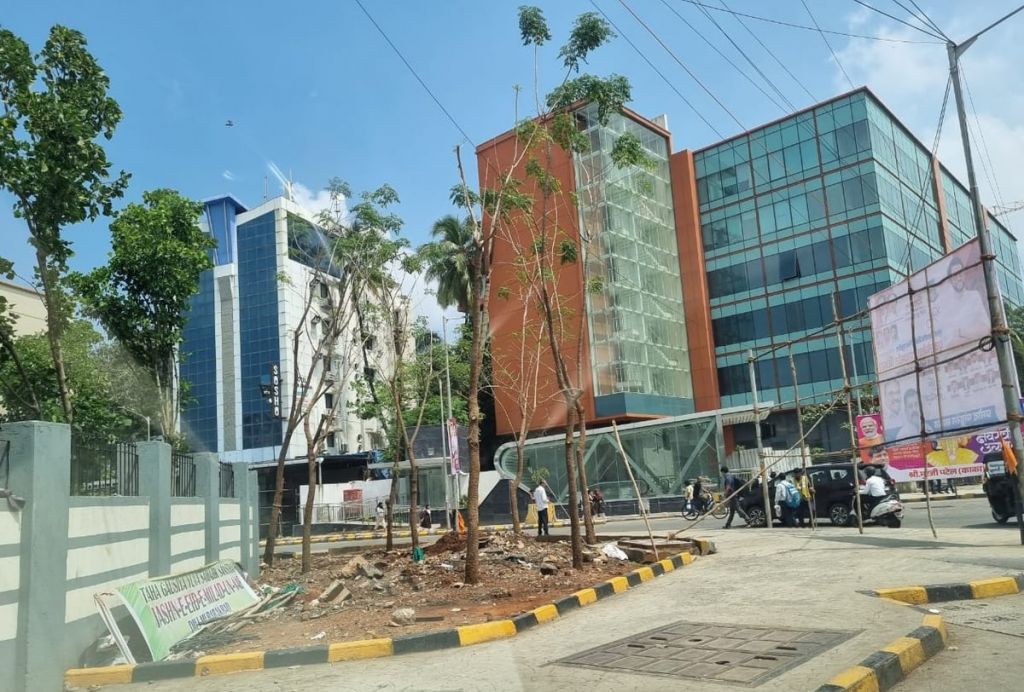
Mumbai: While the Mumbai Metro Rail Corporation Limited is all set to start operations for the first phase of Metro-3, activists have highlighted the non-maintenance of trees along the metro route. Although MMRCL has claimed to have spent Rs. 41,000 for plantation and maintenance of every single tree, the activists have alleged that the current state of the trees indicates neglect by the contractors.
Metro 3 or Awua Line, Mumbai’s most awaited underground metro line is expected to start operations for its Phase 1 from Aarey Colony to Bandra Kurla Complex (BKC) in the first week of October. While MMRCL is occupied with preparations of the first phase’s inauguration, activists have highlighted the sorry state of trees planted along the metro route.
On July 29, The Free Press Journal reported about MMRCL’s reply to an RTI query by advocate Godfrey Pimenta, where the government-owned company claimed to have spent a sum of Rs 12.01 crore on tree plantations along the route, which averaged to Rs. 2 lakh per tree. MMRCL had later changed its stand to have spent Rs. 41,000 for plantation and maintenance per tree.
MMRCL had disclosed that it had awarded three tenders worth Rs. 12.01 crores for the plantation and maintenance of trees in three different packages to New Park Sun Gardens and Hiravati Enterprises. However, even after spending a hefty amount of money towards the maintenance of trees, activists have highlighted the lack of maintenance of trees around the Marol Naka metro station.
On Tuesday, Pimenta wrote to MMRCL alleging that the state of trees around Marol Naka station indicated neglect by the contractor in terms of maintenance. He also added that the trees appear to be between 10 to 15 feet tall but they do not seem to be native to Mumbai and therefore their upkeep is questionable.
“The work orders issued to these agencies require the plantation of advance-sized trees, but they fail to specify the type and nature of trees to be planted. It is imperative that native tree species, suitable for Mumbai's climatic conditions, be prioritised for such large-scale urban projects to ensure long-term sustainability,” said Pimenta.
The activist alleged that the basic standards of tree maintenance are not being upheld even after a significant expenditure on the project. He requested MMRCL review the types of trees planted and ensure that native tree species are used that are better suited to the local ecosystem and will require less intensive upkeep. He also demanded that the contractors must be held accountable for the upkeep and health of the trees, as per the terms of the work order, particularly during the designated three-year maintenance period.